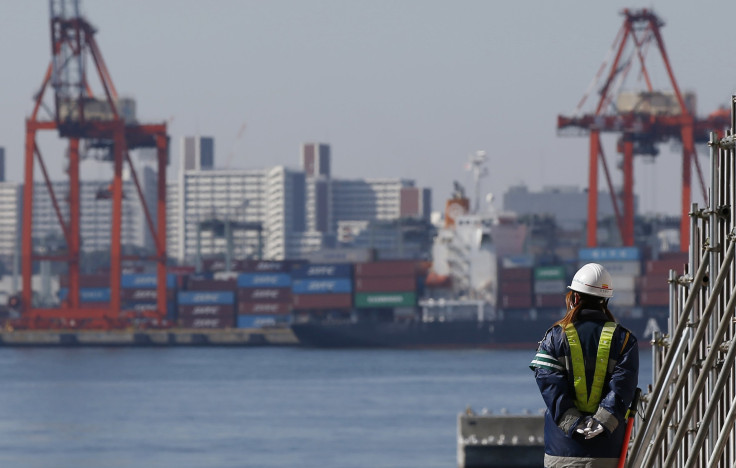Japan Slips Into Recession As Q3 GDP Contracts 0.8 Percent

UPDATE: 2:30 a.m. EST -- Japan’s benchmark Nikkei 225 index closed down 1.04 percent Monday, following the release of disappointing economic data that showed the country’s economy falling back into recession.
Original story:
Japan is back in recession. According to government data released Monday, the GDP of the world’s third-largest economy shrank for the second consecutive quarter in the three-month period ending September 30, marking a technical recession.
On a quarter-on-quarter basis, the economy shrank 0.2 percent in the third quarter, while on an annualized basis, the GDP shrank 0.8 percent. The higher-than-expected contraction follows the second quarter’s less-than-expected yearly decline of 1.2 percent.
Capital expenditure also fell 1.3 percent in the July-September period -- more than the forecast of a 0.4 percent decline.
The latest data, which marks the fourth time Japan has entered recession since the global financial crisis, is likely to put further pressure on the Japanese government and the Bank of Japan (BoJ) to expand an ambitious stimulus package championed by Prime Minister Shinzo Abe.
In 2013, BoJ Governor Haruhiko Kuroda announced a massive $1.4 trillion quantitative easing program in a bid to restore the economy to health and end years of deflation. At the time, Kuroda described the move as “monetary easing in an entirely new dimension.” However, despite the move, deflation and growth fears have continued to plague Japan.
“We … remain convinced that more stimulus will eventually be needed, and now believe that the January meeting is the most likely venue for its announcement,” Marcel Thieliant, an economist at research firm Capital Economics, reportedly said, adding that Japanese policymakers had shown “considerable reluctance” to do so.
In a statement released last month, the central bank slashed the country’s growth outlook and pushed back the deadline to achieve its target of 2 percent inflation. The BoJ now projects GDP to grow at 1.2 percent this fiscal year, down from an earlier forecast of 1.7 percent.
“We expect the economy to head toward a moderate recovery thanks to the effect of various steps taken so far,” Japanese Economics Minister Akira Amari reportedly said Monday.
The markets, however, seemed less optimistic. Following the release of the GDP figures, Japan’s benchmark Nikkei 225 index dropped 1.1 percent in early trade, before recovering slightly and trading down 0.9 percent.
© Copyright IBTimes 2024. All rights reserved.




















